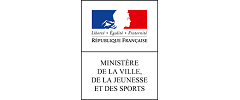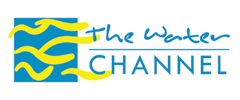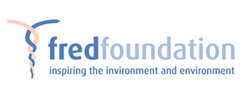Building local capacity for domestic solar heating, hot water and insulation for rural and remote areas in the EEC region
The action will contribute to improved health, reduced poverty and increased energy security in 22 rural communities in 7 EEC countries, through demonstrating domestic solar heating, hot water and insulation measures
25.03.2011
| Countries: | Ukraine, Georgia (main implementation actions); Armenia, Azerbaijan, Belarus, Moldova, Russian Federation – actions via subgranting |
| Donors: | Directorate–General (DG) EuropeAid Development and Cooperation of the European Commission |
| Partners: | Europe: WECF, CDE (Center for Development and Environment), GERES (Groupe Energies Renouvelables, Environnement et Solidarités) Georgia: The Greens Movement of Georgia, Rural Communities Development Agency, Social Development Center Akhaltsikhe, SEMA Ukraine: Ecoclub Rivne, National Ecological Center of Ukraine, Vozrozhdenie Tatarbunary; Subgrantees: Armenia: АЙРУДzИ Aurudzi, Lore Eco Club, Sila Sveta (The Power of Light); Azerbaijan: Eco Renaissance; Moldova: Gutta Club, Ormax, Wisdom; Russia: Buryat Regional Association for Baikal, The Planet of Hopes |
| Issues: | Energy & Climate |
| Duration: | 01/2011 - 12/2015 |

The action will contribute to improved health, reduced poverty and increased energy security in 22 rural communities in 7 EEC countries, through demonstrating domestic solar heating, hot water and insulation measures, based on available local capacities and materials, and creating institutional capacity for upscaling via certified trainers and craftsmen and women, while formulating lessons learned for effective financial, institutional and legal instruments for widespread replication of sustainable energy options.
Together with the local NGO partners, the Swiss organisation CDE and GERES from France, WECF will develop training modules that can be used by local trainers for trainings in target communities. A special focus will be on gender, and there will be different training units for women and men such as:
- Construction, maintenance and use of solar collectors, including training of local trainers
- Insulation measures – technology adaptation and implementation
- Solar house heating
To make the promoted technologies accessible for the target groups, financial instruments to facilitate acquiring of technologies by village population (with a focus on women) will be developed on the basis of existing institutions or mechanisms such as microfinance products, savings group, revolving funds etc. Possibilities of CDM will also be assessed.
Hand in hand with practical implementation, policy makers at national, regional and local level are informed of the benefits of strengthening policies and implementation of programmes that provide incentives for rural communities to invest in renewable energies and energy efficiency measures as demonstrated in this project and have draft policy instruments referring to EU legislation available as a basis for their further action.
Main results:
- The majority of the population of 22 communities in 7 countries in Eastern Europe and Caucasus is convinced of the benefits of solar energy and insulation; wide-spread use of solar collectors, insulation or solar heating, people are feeling ownership and being convinced of the benefits for their own wellbeing.
- NSAs offer integrated approach to implement and operate household solar energy and insulation; Trained craftsmen/women offer construction and maintenance services
- Communities use participatory gender sensitive assessment, monitoring, and evaluation methods
- Access to political and financial instruments as well as public demand for Energy Efficiency and Renewable Energy are available, enabling environment for upscaling
Main objectives of the project:
- Environmental resource protection by reducing use of unsustainable energy sources and reducing CO2 emissions from domestic heating in EEC countries (MDG 7)
- Training local men and women providing them with an income generating potential and reduction of energy costs in rural households (MDG 1)
- Full participation of women in the project development and implementation (MDG 3)
- Increasing energy independence of rural areas as expensive gas and electricity are substituted by freely available solar energy
- Ensure public participation from different stakeholders; local authorities, the regional authorities (Oblasts), local businesses, farmers, and religious leaders if and where appropriate.
- Creating job opportunities in the domestic renewable energy and energy efficiency sectors in EEC countries.
- Contributing to development of effective policy measures for increased energy independence, energy efficiency and use of renewable energy sources in EEC countries.
- Supporting implementation of EU and national sustainable development policies and strategies, in particular sustainable energy policies.
Related News
WECF and partners developed training module on Construction, Use, Monitoring and maintenance of Solar Water Heaters
Training modules on Construction, Use, Monitoring and Maintenance of Solar Water Heaters are made available by WECF
24.03.2016
WECF proud to be amongst the few nominees for prestigious EUSEW Sustainable Energy Award
WECF’s Energy Project Shortlisted for top 10 energy projects, leaving behind hundreds of contestants
18.06.2015
WECF Project Switch to Sun honoured with National Energy Globe Award for Armenia on World Environment Day
WECF Project Switch to the sun – live in comfort!“ has been chosen as best project of Armenia for the Energy Globe Award, today’s largest platform for sustainability. Over 170 countries handed in a total of over 1500 entries.
05.06.2015
Sign up now for the adventurous Big Chill and help to create the very first SolarWaterVillage!
Money raised goes to WECF members' Sustainable Solar Water Energy projects
29.05.2015 | Carmen Chan
Autumn School on Renewable Energy and Climate Change
Call for participants
11.11.2014
Final Conference on EU Energy Project held in Georgia
Challenges in the Energy Sector of Georgia and Sustainable Development highlighted in the final conference of the project ‘Switch to Sun – Live in Comfort’
09.11.2014
As many as 212 Solar collectors are producing hot water in rural villages of Georgia
Switch to sun provides rural Georgians with a much more comfortable life
09.06.2014 | WECF
Going Dutch visits a WECF project in Armenia
Going Dutch travels around the world, visiting projects of Dutch NGO’s for each of the 8 Millennium Goals. This time, Going Dutch visited a WECF project in the village Sverdlov for Millennium goal number 3: equality of men and women.
25.03.2014
One year later, participants of “Switch to Sun – Live in Comfort” evaluate impact solar heating and insulation measures
In a workshop conducted in Georgia, partner organizations from Georgia and Ukraine evaluated the results of the project “Switch to Sun – Live in Comfort” so far
10.07.2013 | WECF
10 years WECF and Ecosan - A film for those who don't know Ecosan
From Romania to Kyrgyzstan: 10 years WECF experience with ecosan toilets in Eastern Europe, the Caucasus and Central Asia.
21.05.2013 | WECF











































